Integrating new chickens into an existing flock does not have to be unduly stressful for the chicken keeper or the chickens. The main concern is always that the two groups of chickens will not get along, but if done correctly, it can be done without drama or bloodshed. I use an approach to flock integration that I call the Playpen Method. I have used it successfully with each addition to my flock over the years.
The Playpen Method is simple: allow the newbies and the original flock members to see and hear each other without having physical contact for a period of time. This allows both groups to familiarize themselves with one another while maintaining a “safe zone” for the new chickens. Integrating new flock members should be done slowly in order to minimize the stress on everyone. The process will take varying amounts of time depending on the flock and individual personalities within the flock.
The Playpen Method entails creating a confinement system (aka: playpen) for the newbies in the vicinity of the flock. This can mean that the flock remains in the run with a small, separate playpen near or in the run for the newbies. It can also mean that the flock free-ranges with the newbies in a playpen nearby.
I have used several different playpens for my newbies but the technique is always the same: look but don’t touch. Water and feed should be made available to the birds in the playpen at all times. After the confinement period of approximately a week, provide the newbies with an opening from the playpen to venture out if and when they wish. Both sets of birds should be ignoring each other by this point. The newbies will typically stay close to the playpen and maintain a safe distance from the flock initially, but eventually they will become comfortable and begin mingling freely. It is normal for the existing flock members to explore inside the playpen and will make it clear to the newbies that they are in charge, however, there should never be excessive chasing, harassment, bullying, aggression or similar monkey business. If hostility is persistent, the newbies should be returned to the playpen for a few more days before trying again.
The newest chicken tractor Mr. Chicken Chick built. Get the DIY instructions HERE!
dog kennelbelow is subdivided for two different age groups of chickens. The ‘teenage’ chickens will reside here for a week until being moved to the grow-out coop next door. When they are moved, I will close off the nest boxes for the first week or two, which will prevent anyone from hiding or sleeping in them and teach them to sleep on roosts as they should. When chickens get into the habit of sleeping in nest boxes they soil the nesting material where eggs will be laid. Good coop management and flock training leads to clean eggs.
Newbies whose playpen is NOT in the coop, are put in the playpen every morning and returned to the brooder at night until I’m certain they’re reasonably comfortable with the flock. It’s a little tricky to get them to understand the concept of going into the coop at night, however, as they have not been trained to the coop yet. When they are placed into the coop full-time, I close off the nest boxes as described above to discourage sleeping and pooping in them. This process will vary depending upon a variety of factors, including coop setup and available equipment.
Some minor scuffling is to be expected as the established pecking order is shaken up. However, if there is any persistent bullying or bloodshed, remove the victim from the general population immediately, clean their wounds and keep them physically separated (ideally, within the flock) until they are fully healed. This is necessary for their own safety. If the victim is bullied upon her return to the flock, separate the aggressor in a playpen within the flock for a few days to prevent physical interaction. The goal is to reduce the aggressor’s stress, promote her familiarity with the newbies from a safe distance.
Kathy Shea Mormino
Affectionately known internationally as The Chicken Chick®, Kathy Shea Mormino shares a fun-loving, informative style to raising backyard chickens. …Read on


shop my SPONSORS
Integrating new chickens into an existing flock does not have to be unduly stressful for the chicken keeper or the chickens. The main concern is always that the two groups of chickens will not get along, but if done correctly, it can be done without drama or bloodshed. I use an approach to flock integration that I call the Playpen Method. I have used it successfully with each addition to my flock over the years.
The Playpen Method is simple: allow the newbies and the original flock members to see and hear each other without having physical contact for a period of time. This allows both groups to familiarize themselves with one another while maintaining a “safe zone” for the new chickens. Integrating new flock members should be done slowly in order to minimize the stress on everyone. The process will take varying amounts of time depending on the flock and individual personalities within the flock.
The Playpen Method entails creating a confinement system (aka: playpen) for the newbies in the vicinity of the flock. This can mean that the flock remains in the run with a small, separate playpen near or in the run for the newbies. It can also mean that the flock free-ranges with the newbies in a playpen nearby.
I have used several different playpens for my newbies but the technique is always the same: look but don’t touch. Water and feed should be made available to the birds in the playpen at all times. After the confinement period of approximately a week, provide the newbies with an opening from the playpen to venture out if and when they wish. Both sets of birds should be ignoring each other by this point. The newbies will typically stay close to the playpen and maintain a safe distance from the flock initially, but eventually they will become comfortable and begin mingling freely. It is normal for the existing flock members to explore inside the playpen and will make it clear to the newbies that they are in charge, however, there should never be excessive chasing, harassment, bullying, aggression or similar monkey business. If hostility is persistent, the newbies should be returned to the playpen for a few more days before trying again.
The newest chicken tractor Mr. Chicken Chick built. Get the DIY instructions HERE!
dog kennelbelow is subdivided for two different age groups of chickens. The ‘teenage’ chickens will reside here for a week until being moved to the grow-out coop next door. When they are moved, I will close off the nest boxes for the first week or two, which will prevent anyone from hiding or sleeping in them and teach them to sleep on roosts as they should. When chickens get into the habit of sleeping in nest boxes they soil the nesting material where eggs will be laid. Good coop management and flock training leads to clean eggs.
Newbies whose playpen is NOT in the coop, are put in the playpen every morning and returned to the brooder at night until I’m certain they’re reasonably comfortable with the flock. It’s a little tricky to get them to understand the concept of going into the coop at night, however, as they have not been trained to the coop yet. When they are placed into the coop full-time, I close off the nest boxes as described above to discourage sleeping and pooping in them. This process will vary depending upon a variety of factors, including coop setup and available equipment.
Some minor scuffling is to be expected as the established pecking order is shaken up. However, if there is any persistent bullying or bloodshed, remove the victim from the general population immediately, clean their wounds and keep them physically separated (ideally, within the flock) until they are fully healed. This is necessary for their own safety. If the victim is bullied upon her return to the flock, separate the aggressor in a playpen within the flock for a few days to prevent physical interaction. The goal is to reduce the aggressor’s stress, promote her familiarity with the newbies from a safe distance.



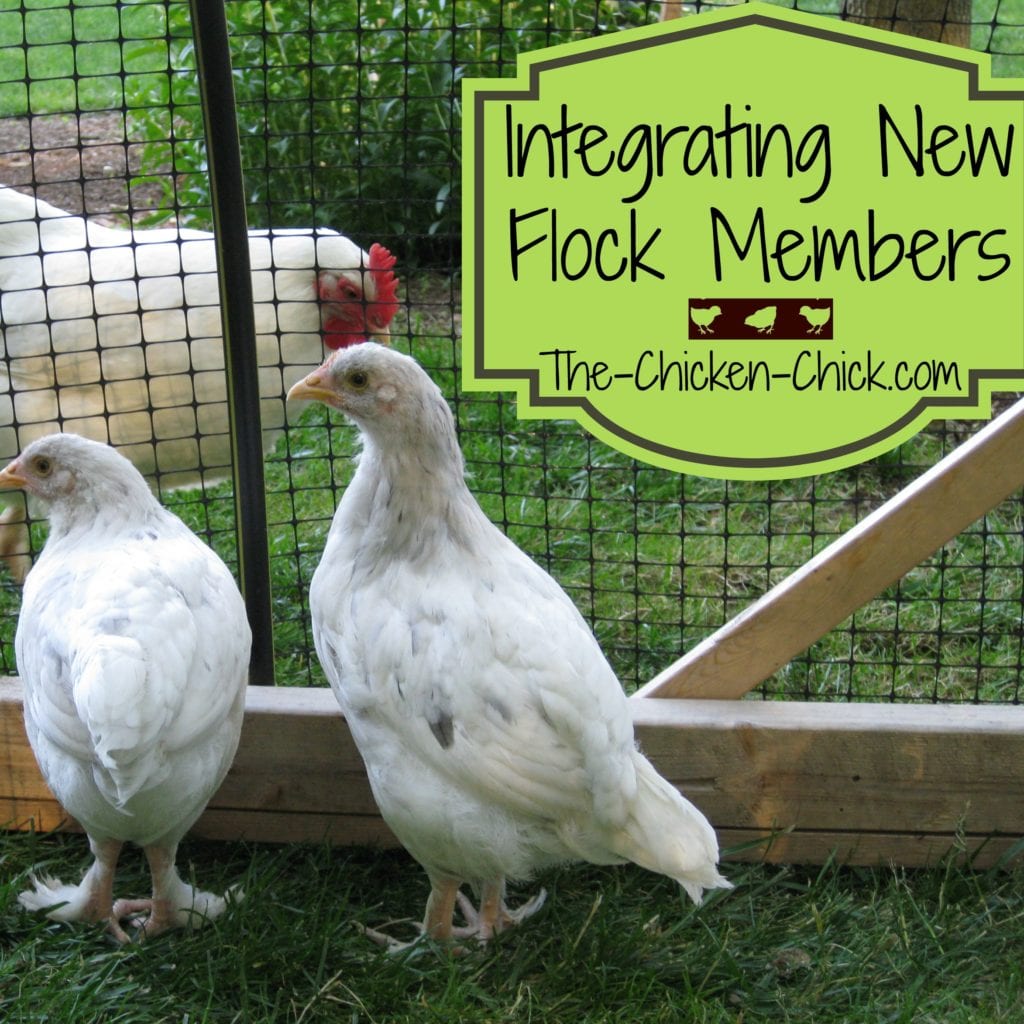
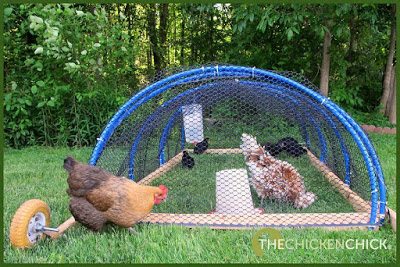
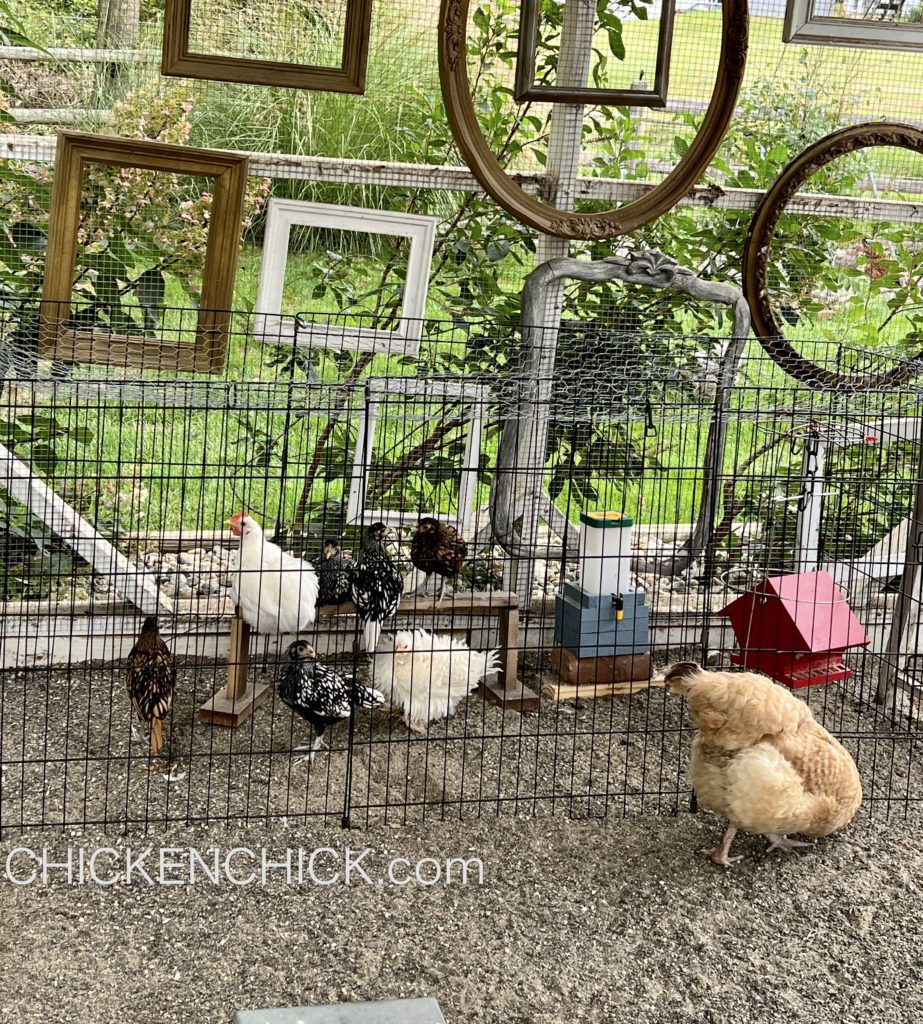
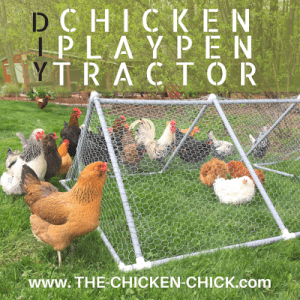
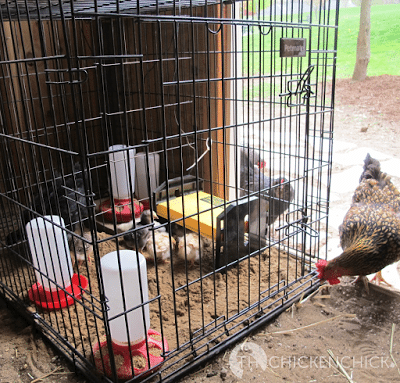














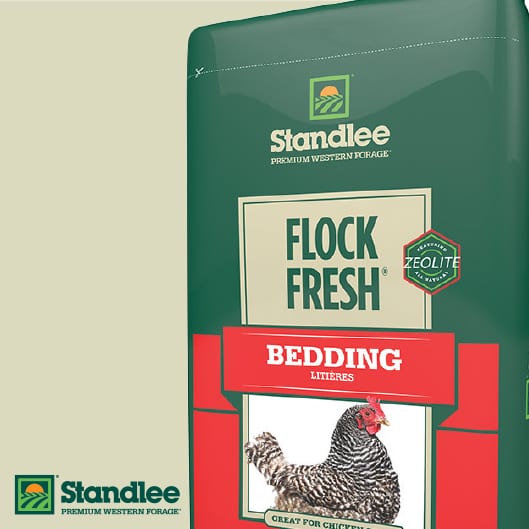


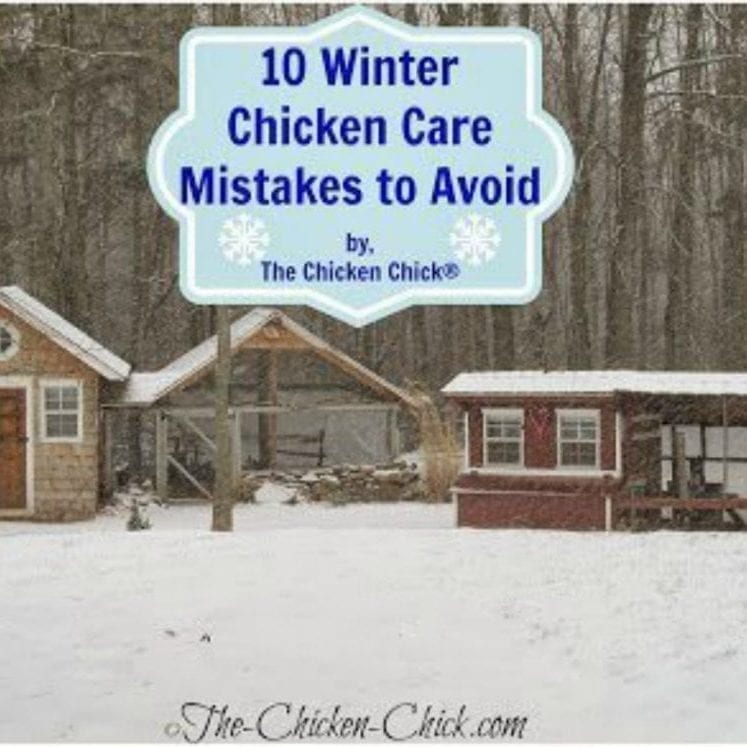









Thank you for this great information. Right now out of my 5 new littles, I have 2 roosters. My Black Frizzle rooster is always pecking on all the other 4. Is this just establishing a pecking,( telling them who's boss) or is he always going to be mean ? I'm alittle worried
It's hard to know what's motivating her, but if you have enough space for everyone and she is still acting out, a time out should help.
Thanks for this! I am getting ready to introduce my 5 week olds to my 12 week olds soon. Should be fun!
Hi Kathy – per an earlier post, it's been over three weeks now I've kept our two younger (now 8 wk old) chicks in the run during the day and bringing them in at night, and the older (now 12 wk old) chick in the coop. I've opened the door between the coop and run during the day, and each time the older one has been pretty tolerant of them most of the time–she started taking over the run and the younger ones go into the coop and they only squabbled now and then. But towards the evening she'll really… Read more »
Thanks for getting back to me. I know there's no rush, I'm just a little anxious to get them outside full time! ;) We actually did put in a roost and tried to leave them outside in the run last night, but as dusk they started to peep nonstop – they wanted in the house! Spoiled kids! We went ahead and brought them back in so our neighbor on the other side of the fence (who sleeps with the window open) wouldn't get upset. They did the same thing again tonight. Oh well. It's been about a week and half… Read more »